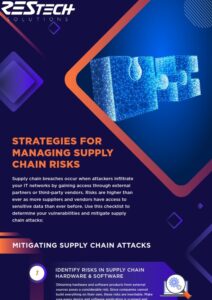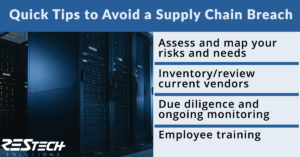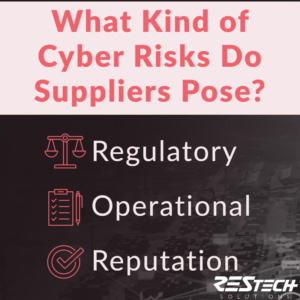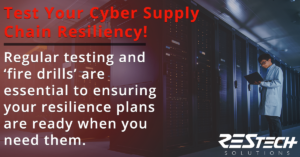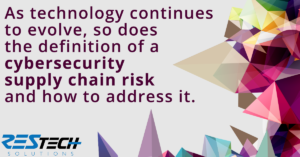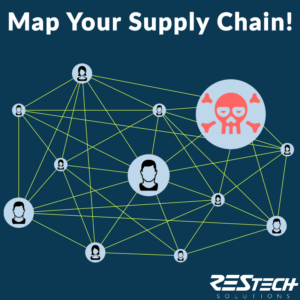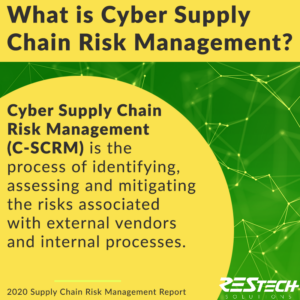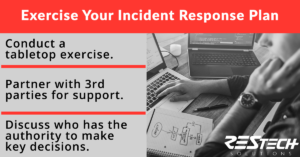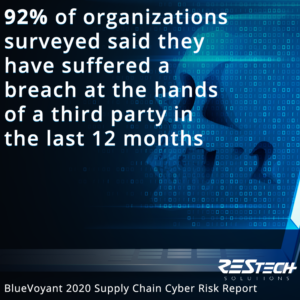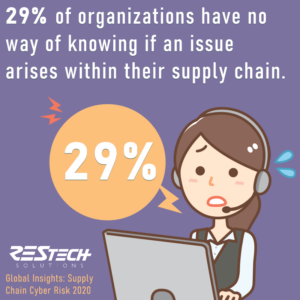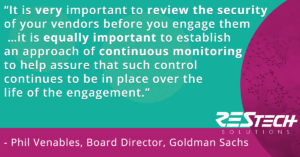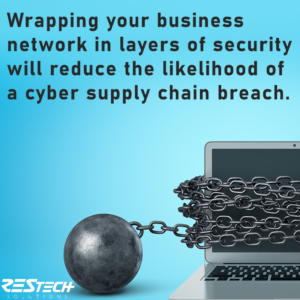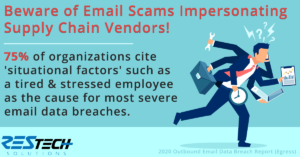Cyber Supply Chain Risk Management
March 2021 - Security
Tips/Info
Addressing security breaches is only possible when the security breach is able to be located and isolated. If breaches can have the potential to go unnoticed within your own organization, imagine how much more difficult it would be to locate a breach caused by your third-party vendors. Visibility, transparency, and communication are essential components of effective supply chain risk management. The question is, are you doing your due diligence to mitigate these risks?
With the COVID-19 pandemic changing workplaces around the world, odds are that the struggles your own employees are experiencing are also being shared by the employees within your supply chain. Remember, your business wouldn’t be a business without a supply chain, so threats like human errors are a very real reality.

